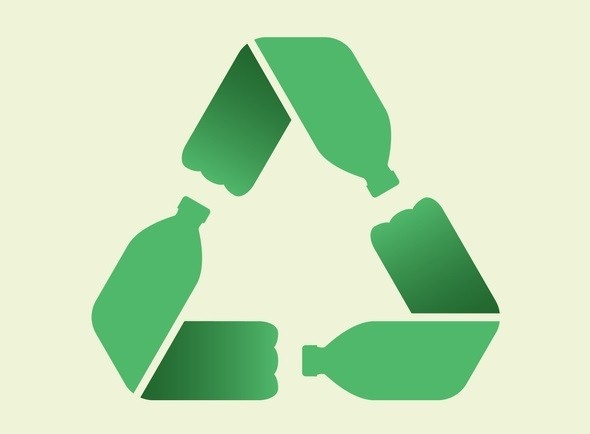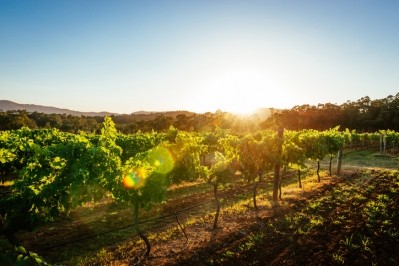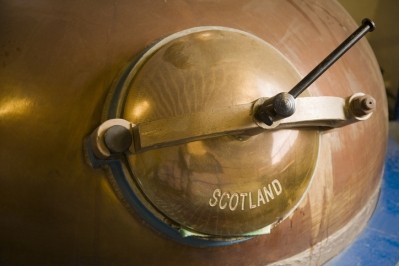‘100% recycled’ bottle claims - which exclude caps and labels - gets drinks brands into trouble with advertising regulator

An advert for Lipton Ice Tea created the impression that the bottle was made entirely from recycled materials when in fact the cap and label was excluded: thus breaching the advertising code, according to the Advertising Standards Authority (ASA).
While the poster featuring the headline text ‘deliciously refreshing, 100% recycled*’ did include clarification in small text that the cap and label was excluded, the brand created the impression that all packaging came from recycled materials, said the ASA.
But Pepsi Lipton International is not alone in feeling the heat: with the regulator also taking issue with a similar '100% recycled bottle' claim from Aqua Pura: alongside claims from the brand of being ‘nature friendly’ and ‘eco friendly.'
The two brands are far from alone in making such claims: sending out a warning for other brands to consider how they communicate sustainability credentials with consumers.
'Very small text' is not sufficient to clarify claims
Pepsi Lipton International's advert was displayed at bus shelters in the UK last year. The company argued that the ‘general understanding’ of consumers was that bottle caps and labels were not generally made of recycled materials.
The ASA, however, said the advert created the overall impression that all components of the bottle were made entirely from recycled materials, deeming the claim '100% recycled*' to therefore be misleading.
It noted that text clarified that caps and labels were excluded from the claim, but said the wording was in 'very small text' in the bottom of the ad and therefore could be overlooked.
“Notwithstanding that, we considered that even if some consumers had seen the qualification, because the cap and label were not made from recycled materials, and the overall impression they created was that all parts of the bottle were made entirely from recycled materials, the qualification was insufficient to counter that impression.”
What makes a cap eco-friendly?
Meanwhile, Roxane UK’s television ad for its Aqua Pura water bottle claimed its bottle was ‘100% recycled and recyclable with eco-friendly cap’.
The cap was made from high-density polyethylene (HDPE) plastic and the label was made from polypropylene (PP): and Roxane said it was clear to consumers that only the bottle was made from recycled material.
Clearcast - which clears ads for broadcast - noted the cap was produced with less plastic than other bottle cap designs. In addition, the cap is a ‘flip to open, snap to close’ cap that remains attached to the bottle and therefore cannot get lost in the environment. The bottle label explained the purpose of the 'eco-friendly' cap.
But the ASA still considered the ‘eco-friendly’ tag to be ambiguous.
“We considered it might be understood by some viewers to distinguish the cap from the rest of the bottle and therefore that it was excluded from the “100% recycled & recyclable” claim. However, we considered that most would understand from the claim in its entirety that the cap was 100% recycled and recyclable, and that there was an additional environmental benefit provided by the cap.”
In fact, the ‘eco-friendly’ claim was problematic in itself, continued the ASA, which wanted to see evidence for the full life cycle of the cap to justify the claim.
“We acknowledged that the lid was designed so that it remained attached to the bottle and that, as a result, it was less likely to be lost in nature where it could be confused for food by birds and other wildlife.
"We also acknowledged that, for that reason, the cap may have been friendlier to the environment than other types of single-use plastic bottle caps. However, the cap was made from (non-recycled) plastic.
"We considered that the extraction of raw materials and subsequent processing of those materials in order to produce the plastic for the cap had a negative impact on the environment.
“Because we had not seen evidence for the full life cycle of the cap and because the cap was made from a material that was inherently harmful to the environment, we considered the claim “eco-friendly cap” overstated the environmental benefit of the cap and was therefore misleading.”
Similarly, the claim of being ‘nature friendly’ lacked full cycle evidence, continued the ASA.
In October, a complaint against Alpro’s ‘Good for the planet’ claim on its almond-based products was also upheld by the ASA, because it was not clear what the basis of the claim was.
And in September 2018, a carton water brand’s ad was banned for failing to back up its claims that carton water required less tracks for transportation.










